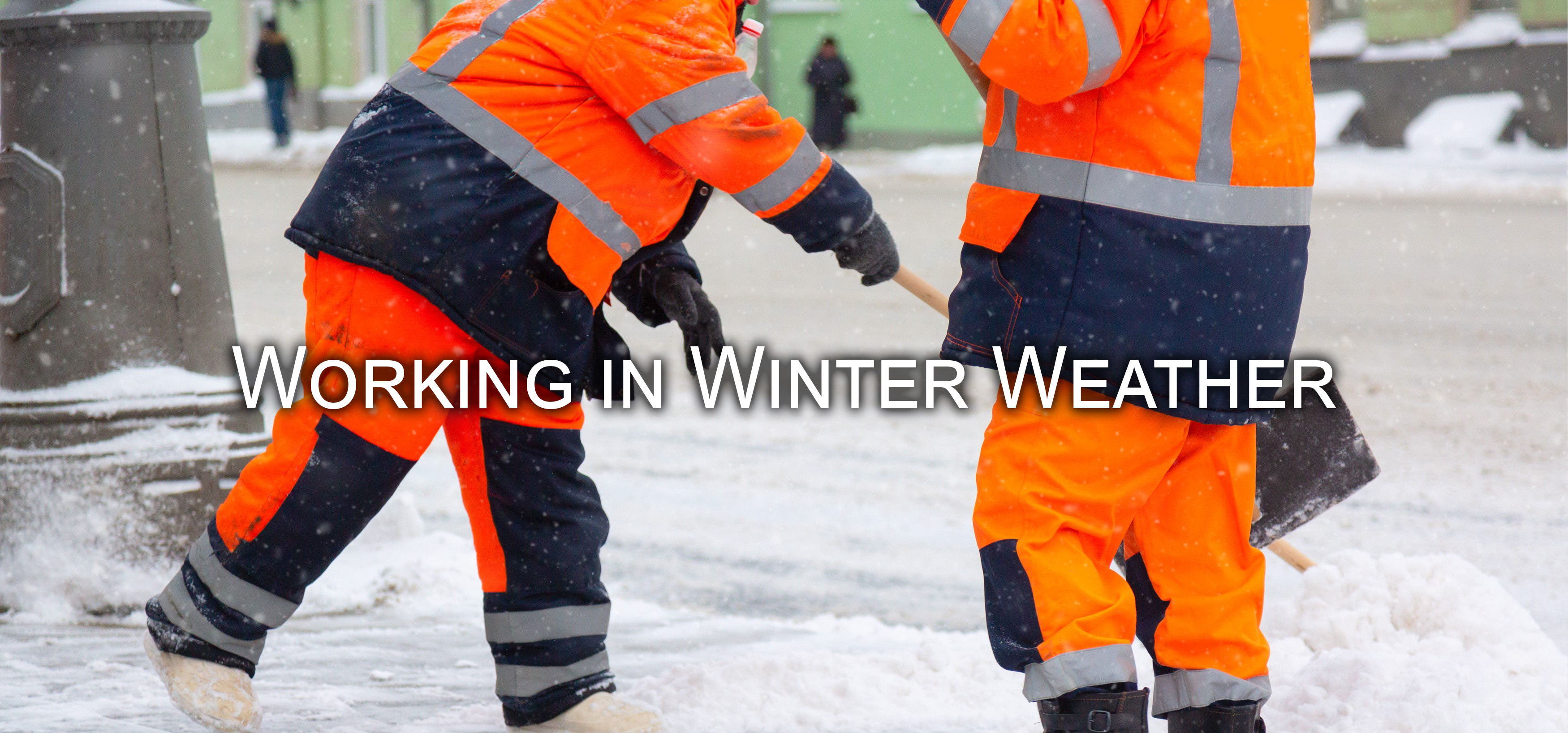
Work does not take a break when winter arrives with its hazardous weather. Each year, thousands of avoidable injuries occur from activities and work done in snow and ice. As the temperatures start to drop, it's important to refrain from taking shortcuts and stay alert to avoid tragedies.
Prevent Hypothermia and Other Injuries
Dressing warm and wearing the proper clothing and gear is one of the easiest ways to help protect yourself during these frosty months. It's important you consider the following every time before you head outside for work.
- Dress in multiple layers.
- Keep your head and ears covered. -- Most body heat escapes through the head.
- Wear gloves/mittens and insulated socks. -- Mittens allow your fingers to touch, which generates more body heat, keeping your hands warmer.
- Wear a hi-visibility coat when working around roadways or other areas with vehicular traffic. This ensures that you are visible to others during snowy weather when visibility is often reduced. *If you are in need of hi-visibility gear, stop by one of our retail stores to pick some up! More information here.
Preventing Slips,Trips and Falls
Snow and ice on walkways and roads can be some of the easiest hazards to fall victim to. Take your time when outside in winter weather, even if you are in a rush.
- Keep walkways, stairways and other work areas clear of snow and ice as much as you can.
- Mark or barricade off especially hazardous areas using signs and physical barriers.
- Make sure that your footwear has good traction. This is often a tip that is overlooked...but it can be the difference between losing your balance and falling or not.
- Avoid walkways covered in ice. Use any cleared or bare pavement, surfaces or grassy areas instead.
- If you can't avoid icy or potentially icy surfaces, walk with short, shuffling steps. This will minimize the chance of losing your balance.
- Avoid carrying heavy loads, be alert and have your hands ready to steady yourself if you do slip and lose your balance.
- Remain alert and be on the lookout for patches of black ice, as they are more difficult to see.
Preventing Overexertion During Snow Removal
It's safe to say that the majority of individuals do not enjoy removing snow. Depending on the amount and type of snow, safely removing it can be quite tricky. The following tips will help you minimize the potential for injury.
- Do not shovel immediately after eating or while smoking.
- Take it slow -- warm up to get your blood flowing and be sure to stretch before shoveling. This may seem silly, but can significantly reduce your body's likelihood of injury.
- Use an ergonomically designed snow shovel with a curved/bent handle to reduce back-bending.
- Push the snow instead of lifting, whenever possible.
- Do not try to move more weight than your body is capable of. Use a smaller shovel or only partially fill the shovel to avoid muscle straining.
- Always lift with your legs, not your back.
- Pivot your body rather than twisting your back when removing snow from the shovel.
- Take periodic breaks and do not work to the point of exhaustion.
- If you have a history of heart disease, check with your doctor before shoveling to ensure that it is safe for you to do.
Snow Blower Safety
According to the Consumer Product Safety Commission, in 2021, 4,200 snow blower related injuries were treated in ERs. Over 40% of the injuries were to the wrist, hand and finger. Don't become a statistic this winter. Be sure to follow these tips below to safely use your snow blower.
- Do not remove, tamper with, or bypass any guarding.
- Add fuel outdoors, before starting -- and never add fuel when the snow blower is running.
- To avoid carbon monoxide exposure, do not run a snow blower in an enclosed area like a garage.
- If the snow blower jams, turn it off and use a long push stick to clear wet snow and/or debris to avoid lacerations or amputations. (The blades on a snow blower can move when unjammed, even when the blower is off.)
While several of the tips above may seem like common sense, it can be easy to get into a routine and not pay attention to hazards that you otherwise would. That's why it's important to remain alert when work brings you outside during winter weather.
